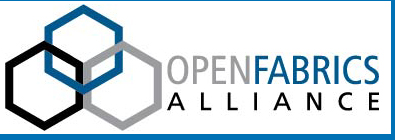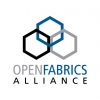The OpenFabrics Alliance recently completed its 2nd User Day Workshop, a unique event that brings together OpenFabrics Software (OFS) users and provides them with a setting to talk with each other about the challenges, different opportunities and permutations in using OFS. We recently caught up with Susan Coulter, HPC Network Administrator at Los Alamos National Laboratory, who spearheaded the 2-day event, to get her thoughts on the highlights and key themes from the workshop.
OFA: Last year’s inaugural User Day Workshop was deemed a huge success and gave OFS users a platform to engage with other users and hear different perspectives and features that OFS is capable of providing to their organizations. This year’s workshop was also a huge success, for many of the same reasons. What were the key takeaways?
SC: The main thing that came out of this year’s workshop was that we are definitely filling a much needed void in the industry and that attendees find the event valuable to their businesses. We conducted a survey at the end of the workshop and 100% of those who responded said they would recommend the event to their colleagues and more than 80% said they would come back next year. (Attendees who said they would not come back indicated that it was due to lack of company funding and budgets.) Another main takeaway from this year’s workshop was that it was more about a positive sharing of ideas, instead of first-time users with complaints. The conversations were geared more towards what works and what doesn’t, more feedback driven and much more constructive. We received more technical data from people in the OFS community.
From a numbers standpoint, during the 2-day event, we hosted almost 50 attendees (mostly those focused on storage networks and HPC) and provided them with insight from 15 different speakers.
OFA: What was your favorite session (or sessions) and why?
SC: I really enjoyed the session on Open SM/SA Functionality presented by Hal Rosenstock of Mellanox. Hal has worked with OpenSM for many years and has a deep understanding of all the moving parts. As an added bonus, Hal stayed for the entire day on Friday and was able to contribute to session conversations and provide insight based on his knowledge and experience with OFS. One topic that came up repeatedly was partitions. There were several sessions that touched on the idea of partitions and how Infiniband can be partitioned for various reasons and what it takes to configure such a fabric.
But what I really enjoyed this year, more than any individual session, was the social hour. I’ve always been a fan of these types of networking events as they allow attendees to have more natural, free-flowing conversations about what their organizations are currently focused on, specifically with regards to OFS.
OFA: What other topics/sessions did attendees seem to be most interested in during this year’s workshop?
SC: This year’s workshop was very network-admin focused (those who maintain fabrics), so many of the sessions were about the nuts-and-bolts of setting up fabrics, monitoring them and insuring their performance. There were several sessions that revolved around storage area networks and their special needs. In the future we need to also include a substantial presence from the Upper Layer Protocol (ULP) supporters. The primary ULPs in the HPC world are the MPIs that allow jobs to run on large clusters. There is quite a bit of overlap between the ULPs and the fabric itself and how communications over the fabric perform,, so the next User Day will hopefully address some of those configuration issues in some depth.
To see a list of sessions at the 2013 User Day Workshop, click here.

